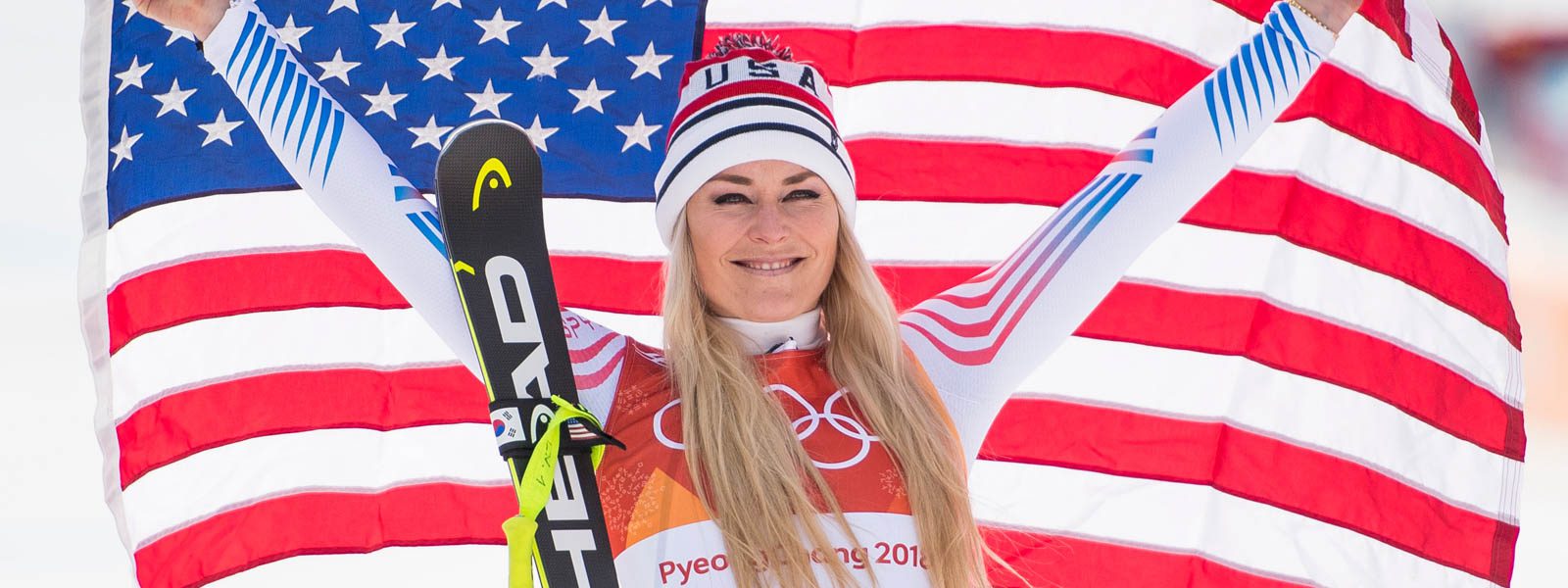5 mental muscles for ski racing success
You have certain muscles in your body that are absolutely essential for ski racing including your quads, glutes, and hamstrings. The simple reality is that if you don’t actively strengthen these muscles, you will not be capable of skiing your best.
 You should think about your mind as made up of mental muscles, the same way you think about your body and its physical muscles. And you have certain mental muscles that are also absolutely critical for you to ski your best. Taking this analogy the natural next step, you have to actively strengthen your mental muscles to ensure that they are strong enough to handle the demands of our sport. The five mental muscles are motivation, confidence, intensity, focus, and emotions.
You should think about your mind as made up of mental muscles, the same way you think about your body and its physical muscles. And you have certain mental muscles that are also absolutely critical for you to ski your best. Taking this analogy the natural next step, you have to actively strengthen your mental muscles to ensure that they are strong enough to handle the demands of our sport. The five mental muscles are motivation, confidence, intensity, focus, and emotions.
Motivation
Motivation is your determination and drive to achieve your ski racing goals. It is the foundation of everything you do in your ski racing. Motivation is not how committed you say you are, but whether you are actually doing what is necessary to accomplish those goals. Without it, nothing else matters because it is motivation that gets you up in the morning, gets you to workouts and on-snow training, and keeps you going when things get difficult. Motivation is so important because it impacts everything that influences your ski racing: physical conditioning, technical and tactical training, mental preparation, and general lifestyle including sleep, diet, school or work, and relationships.
There are some strategies you can employ to help your motivation in the short run, for example, setting and reminding yourself of your goals for the coming season, having a training partner, listening to motivating music, and making sure your training is fun. But, for the long-term motivation that is required for ski racing success, you must find the motivation inside of you. You must have a good reason that keeps you going when you’re tired, in pain, cold, bored, or struggling. Your goal is to be motivated to do whatever is necessary to achieve your ski racing goals.
Confidence
Confidence is the most important mental factor when it comes to race day. I define confidence as how strongly you believe in your ability to ski your fastest and achieve your goals. Confidence is so important because you may have the physical, technical, and tactical ability to ski fast, but if you don’t believe you have that ability, then you won’t perform up to that ability.
Confidence is developed from several sources including being maximally prepared, have a mental ‘toolbox’ so you can fix problems when they arise, training and responding positively to the inevitable adversity you will face in training and races, staying positive when things aren’t going well, and having success in training and races. Your goal is to develop a deep and resilient confidence that will be you positive when you’re not skiing well and encourage you to take the necessary risks to ski your fastest.
Intensity
When you are in the starting gate of a training or race run, intensity becomes one of the most important contributor to ski racing success. Intensity is the level of physiological activity you feel in your body including heart rate, respiration, blood flow, and adrenaline. Intensity lies on a continuum that ranges from sleep (very relaxed) to terror (very anxious). Somewhere in between those two extremes is the level of intensity at which you are capable of skiing your fastest.
The challenge with intensity is that there is not one ideal intensity for all racers. Depending on your physical and psychological make-up, you may ski your fastest very relaxed, moderately intense, or super fired up. Your goal is to identify and actively reach your ideal intensity before every training and race run.
Focus
When you leave the starting gate, focus becomes another essential influence on how fast you ski. Focus involves paying attention to things that will help you ski fast (e.g., technique, tactics, attacking) and avoiding distractions that interfere with your skiing fast (e.g., results, other racers, an upcoming exam). Your ability to stay focused from start to finish will determine how fast you ski and whether you will be able to maintain that speed consistently from start to finish.
Another key component of focus involves understanding your focus style before training and race runs. A focus style is a preference for paying attention to certain cues. Athletes tend to be more comfortable focusing on some cues and avoid other cues. Racers with an internal focus style ski their best when they’re totally and consistently focused on their preparations before a training or race run. They need to keep their focus narrow, thinking only about what they need to do to get ready to ski their fastest.
In contrast, racers with an external focus style ski their best when they only focus on their skiing when they’re about to begin a training or race run. At all other times, it is best for them to broaden their focus and take their mind off their skiing. These racers have a tendency to think too much, become negative and critical, and experience competitive anxiety, so the more they distract themselves, the less they will get stuck in their heads. Your goal is identify your focus style and maintain your ideal focus and avoid distractions from the beginning of your start routine until you cross the finish line.
Mindset
Let me begin this discussion of mindset by clarifying that my use of mindset is different than its use by the Stanford University researcher Dr. Carol Dweck and her writings on the topic. I define mindset as what is going through your mind in the 30 seconds before you leave the starting gate. What happens in your mind during that oh-so-important period sets the stage for whether you ski your fastest consistently.
I have found three mindsets that the world’s best ski racers appear to use most. An aggressive mindset is often needed to go from good skiing to fast skiing for racers who aren’t naturally aggressive. It involves focusing on attacking and ‘bringing it’ in the start and getting really fired up mentally.
A calm mindset is typically best for racers who get nervous before they race. Throughout your pre-race preparations and when in the starting gate, your primary goal is to settle down and relax, thus allowing your mind to let go of doubt and worry and your body let go of nerves and tension.
A clear mind involves having basically nothing related to skiing going on in your mind before your race run. A clear mind is most suited for racers who are intuitive (meaning they don’t have to think about their skiing to ski fast), free spirited (meaning they go with the flow in their approach to their skiing), and experienced (meaning they have a lot of trust in their ability to ski their fastest).
Your goal is to identify which mindset works best for you and use it consistently in your training and race efforts. The result will be that, when you’re in the starting gate of your most important race of the season, that mindset just clicks on and it enables you to ski your fastest.
Like any muscle, these five mental muscles won’t just develop on their own. Rather, you have to actively train them in a structured and consistent mental training program. Only by strengthening these mental muscles will be you have a chance to ski your fastest, get the results you want, and achieve your ski racing goals next season.
Want to get your mind on a great conditioning program? Learn more about my new 12-week online mental training program. This 12-week live and interactive program takes everything I know about the mental side of ski racing and offers it in an organized, engaging, and affordable format. I offer team discounts and coaches can attend for FREE with an enrollment of 15 athletes from a team. Plus, parents who want to participate can receive a 2-for-1 couples discount.





















